Full Program
Caption Lines HereAAI Program Committee: Back to School: A Review of Four Fast-Moving Fields
Chairs:
Wendy L. Havran, Scripps Research Institute
Frances E. Lund, University of Alabama at Birmingham
Speakers:
John T. Chang, University of California, San Diego, Single-cell approaches in immunology
Garry P. Nolan, Stanford School of Medicine, High dimensional immune system imaging and the heterogeneity illusion
Leonard D. Shultz, The Jackson Laboratory, Humanized mice in translational immunology
Helen C. Su, NIAID, NIH, Inborn errors in human immunity: recent advances
This workshop intends to bring a broad audience up-to-date on a few emerging or rapidly changing fields or areas of technological innovation. Expert lecturers will provide an overview of each trending topic with an emphasis on communicating big picture concepts.
Block Symposia
End Organ Disease in Autoimmunity
Inflammation and Tumor Immunity
Lymphocyte Subset Development and Regulation
Metabolic Function in Immune Cells
Mucosal Immunity to Bacterial Pathogens
Virus-specific T Cell Activation, Differentiation, and Exhaustion
New Member Reception (By Invitation Only)
 Sponsored by the AAI Membership Committee
Sponsored by the AAI Membership Committee
(Badge and invitation required)
AAI welcomes new Regular, Associate, and Postdoctoral Fellow members to meet each other at a relaxed gathering. Members of the AAI Membership Committee, AAI President Dan Littman, and fellow Council members will join the new members for casual conversation and light refreshments.
AAI President’s Address

Dan R. Littman HHMI, New York University School of Medicine
AAI President
From the thymus to the mucosa: a three-decade journey
Arthur Weiss, HHMI, University of California, San Francisco
Introduction
AAI Lifetime Achievement Award Presentation
Chair:
Dan R. Littman, HHMI, New York University School of Medicine, AAI President
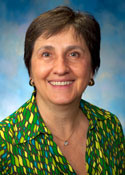 Award Recipient:
Award Recipient:
Olivera J. Finn, University of Pittsburgh School of Medicine
AAI President Dan R. Littman will introduce the awardee and present the award prior to the start of the President’s Address.
The AAI Lifetime Achievement Award is the highest honor bestowed by the AAI Council upon an AAI member. This award recognizes a deserving member for a career of scientific achievement and for contributions to AAI and fellow immunologists.
Opening Night Welcome Reception
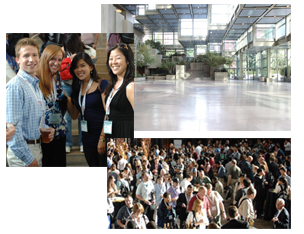 Generously sponsored, in part, by Fred Hutchinson Cancer Research Center
Generously sponsored, in part, by Fred Hutchinson Cancer Research Center
Following the President’s Address, come straight to the Center’s Atrium Lobby for the Opening Night Welcome. Connect with friends, make new acquaintances, and plan your week. Enjoy the Atrium’s park setting and, weather permitting, stroll through the gardens to enjoy reunions and relax from your travels. Bring the complimentary drink ticket included with your meeting badge.
Major Symposium A: Macrophage Development and Function in Health and Disease
Chairs:
Jessica A. Hamerman, Benaroya Research Institute
Marco Colonna, Washington University School of Medicine
Speakers:
Christopher K. Glass, University of California, San Diego, Influence of tissue environment on macrophage identity and function
Frederic Geissmann, Memorial Sloan Kettering Cancer Center, In vivo analysis of macrophage functions
Jeffrey W. Pollard, University of Edinburgh, Tumor associated macrophages: from mechanism to therapy
Catherine C. Hedrick, La Jolla Institute for Allergy and Immunology, Monocyte subsets in cancer
Jessica A. Hamerman, Benaroya Research Institute, Macrophage differentiation during inflammation
Marco Colonna, Washington University School of Medicine, Brain macrophages and neurodegeneration
Major Symposium B: Unconventional T Cells and Innate-Like Lymphocytes
Chairs:
Rebecca L. O’Brien, National Jewish Health
Luc Teyton, Scripps Research Institute
Speakers:
Rebecca L. O’Brien, National Jewish Health, Gamma/delta T cells prevent autoimmune attack by enhancing Treg development
Yueh-Hsiu Chien, Stanford University, Gamma-delta T cells: first line of defense and beyond
Luc Teyton, Scripps Research Institute, New lipids for old T cells
Dale I. Godfrey, University of Melbourne, The development and diversity of MR1-restricted MAIT cells
James McCluskey, University of Melbourne, The conundrum of MAIT cells
Richard M. Locksley, HHMI, University of California, San Francisco, Allergic immunity: new cells, new pathways
Chinese Society of Immunology (CSI) Symposium: Innate Immunity in Stress and Homeostasis
Chairs:
Zhigang Tian, University of Science and Technology of China
Weiping Zou, University of Michigan School of Medicine
Speakers:
Chengjiang Gao, Shandong University, Feedback regulation of innate antiviral signaling
Rongbin Zhou, University of Science and Technology of China, The mechanisms for the regulation of NLRP3 inflammasome
Zhihua Liu, Institute of Biophysics of the Chinese Academy of Sciences, Commensal bacteria direct selective cargo sorting to promote symbiosis
Hongyan Wang, Shanghai Institutes for Biological Sciences, Chinese Academy of Sciences, Identification of VEGFR3 and STK4 as new targets for inflammation-related diseases
Dawang Zhou, Xiamen University, The kinases Mst1 and Mst2 positively regulate phagocytic induction of reactive oxygen species and bactericidal activity
Block Symposia
8:00 AM – 10:00 AM
Cellular Immune Responses at the Mucosa
Cytokine Regulation of Immunity to Eukaryotic Pathogens
Micro RNAs and RNA Control
Novel Vaccines/Immunotherapy Protect from Viral and Bacterial Infection
T Cells and Therapeutics in Autoimmunity
10:15 AM – 12:15 PM
Host-Bacterial Interactions
Mast Cells and IgE
Metabolism and Immune Regulation in Tumor Therapy
T Cell Responses during Acute and Chronic Virus Infections
12:30 PM – 2:30 PM
Antigen Processing and Presentation 1
Innate Cells in Autoimmunity
T Cell Development
T Cell Subsets, T Cell Therapy, and Vaccines for Cancer
3:45 PM – 5:45 PM
Altered Immune Pathways in Disease
B Cell and CD4 T Cell Responses during Viral Infections
Innate Immune Regulation
Leukocyte Trafficking
Molecular Signatures of Eukaryotic Pathogens
T Cell Activation: The Early Events
Transplantation Immunology
How to Convert Your CV into a Resumé
Chair:
Mary T. Litzinger, AAI
Speaker:
Derek Haseltine, Director, Career Development Center, Baylor College of Medicine
For anyone seeking a job outside of academe, how you present yourself on paper is critical. A well prepared resumé can make all the difference in securing that interview. The focus of this session will be on the important elements of a resumé, the differences between a resumé and the standard academic curriculum vitae, and the information needed to make a good impression. In this special career development session, attendees will be instructed in how to transform their CVs into professional resumés. Small breakout sessions for individual consulting will follow in Room 307 from 10:30 AM to 12:30 PM. Bring your CV!
AAI Committee on Public Affairs: Hot Topics in NIH Funding and Research Policy
Chair:
Clifford V. Harding, Case Western Reserve University; AAI Committee on Public Affairs Chair
Speakers:
Gail A. Bishop, University of Iowa
Richard K. Nakamura, Director, Center for Scientific Review, NIH
Richard J. Hodes, Director, National Institute on Aging, NIH
Change at NIH continues to happen at a rapid pace, driven by the president, Congress, NIH, and the scientific community. This session will explore several recent changes, including new funding mechanisms offered by several NIH institutes which fund investigators rather than specific projects; changes—and proposed changes—to the peer review system, including a pilot program to expand the pre-application process; and efforts to enhance the reproducibility (through improved rigor and transparency) of research. Speakers will discuss the mechanisms and policies that have already been implemented and provide insight into what may come next. Ample time will be provided for questions and answers.
National Institute of Environmental Health Sciences (NIEHS) Symposium: Environmental Triggers of Autoimmunity
Chairs:
Michael C. Humble, NIEHS, NIH
Keith B. Elkon, University of Washington
Speakers:
Keith B. Elkon, University of Washington, Impact of UV light on innate immunity in lupus
DeLisa Fairweather, Mayo Clinic, Endocrine disruptors alter inflammatory heart disease by activating mast cells
Tai Guo, University of Georgia, Exacerbation of type I diabetes in female NOD mice following developmental exposure to bisphenol A and genistein
James P. Luyendyk, Michigan State University, Mechanisms at the interface of environmental exposure and autoimmunity
Society for Glycobiology (SfG) Symposium: Glycobiology of Immune Responses
Chairs:
Fikri Y. Avci, University of Georgia
Linda G. Baum, University of California, Los Angeles
Speakers:
Linda G. Baum, University of California, Los Angeles, Regulation of immune cell function by galectin-glycoprotein lattices on the cell surface
Bruce S. Bochner, Northwestern University, Airway glycans that control allergic lung inflammation by interacting with eosinophil siglecs
Taia Wang, Rockefeller University, IgG Fc glycoforms in protective and pathogenic antibody responses
Brian A. Cobb, Case Western Reserve University, Carbohydrate-mediated immune regulation
Fikri Y. Avci, University of Georgia, New insights on carbohydrate antigens and immune responses
Immunology Teaching Interest Group
Sponsored by the AAI Education Committee
Chair:
Julie M. Jameson, California State University, San Marcos
Panelists:
Pierette M. Appasamy, Chatham University, Analogies and role-playing to “experience” immunology in an undergraduate immunology course
Anil K. Bamezai, Villanova University, Strategies to promote active learning culture in the classroom
Deborah M. Brown, University of Nebraska, Lincoln, Just-in-Time Teaching strategies for an upper level immunology course
Jason S. Rawlings, Furman University, Incorporating primary literature discussion in an undergraduate immunology course
Laurie P. Shornick, Saint Louis University, A systems and Goldilocks approach to teaching immunobiology
Are you looking for new ideas or strategies to enliven and improve your teaching? If so, please join us for this special interest group which will focus on strategies that instructors can use to successfully convey immunology concepts to students at the undergraduate and graduate level. Topics will include the concept and implementation of Just-in-Time Teaching, strategies to incorporate primary literature discussion into an undergraduate course, the use of a flipped classroom and peer instruction to promote active learning in the classroom, and more. The session will include ample time for open discussion and networking. Current educators, new faculty, and trainees with an interest in teaching are welcome.
Careers Roundtable and Speed Networking Session
Sponsored by the AAI Minority Affairs Committee
Supported in part by a grant to the Federation of American Societies for Experimental Biology (FASEB) from the National Institute of General Medical Sciences (NIGMS), National Institutes of Health [FASEB MARC Program: T36-GM08059-32 NCE]
Chair:
Cherié L. Butts, Biogen-Idec; AAI Minority Affairs Committee Chair
Networking skills have never been more crucial to ensure success for early/mid-career scientists, including those traditionally under-represented in biomedical research. At the roundtable, take advantage of the opportunity to meet in small-group format with accomplished, senior immunologists to hear how they have handled the career challenges you now face and learn what they believe will work for you today. Then practice networking in a relaxed environment offering a structured networking exercise and personalized feedback on communicating your scientific interests/objectives most effectively. Registration Fee: $20 (Includes lunch; coffee/cookies during networking hour.)
Discussion topics and table leaders:
- Grad Student: finding a mentor; taking aim at postdoc training
Table Leaders: Randy R. Brutkiewicz, Indiana University School of Medicine; Eduardo Davila, University of Maryland Greenebaum Cancer Center; Tonya Webb, University of Maryland School of Medicine - Postdoc: finding a mentor; taking aim at a faculty position
Table Leaders: Jose R. Conejo-Garcia, Wistar Institute; Mireia Guerau-de-Arellano, Ohio State University; Joseph Larkin, III, University of Florida - Junior Faculty: preparing for promotion and tenure
Table Leaders: Avery August, Cornell University College of Veterinary Medicine; Robert J. Binder, University of Pittsburgh; Prosper N. Boyaka, Ohio State University - Academia or Industry: how to decide (or switch sides)
Table Leaders: Robert Balderas, BD Biosciences; Margaret Bynoe, Cornell University College of Veterinary Medicine; Karel Otero-Gutierrez, Biogen-Idec - Government Agency Careers: CDC, FDA, NIH
Table Leaders: Marta Catalfamo, NIAID, NIH; Charles Egwuagu, NEI, NIH; Alison Mawle, Centers for Disease Control and Prevention - Non-Bench-Research Science Careers (e.g., scientific publishing; non-profits; entrepreneurship)
Table Leaders: Peter T. Lee, Cell Press (Editor, Immunity); James W. Lillard, Morehouse School of Medicine and JYANT Technologies, Inc.; Thandi Onami, Bill & Melinda Gates Foundation (Program Officer, Global Health – HIV Vaccines)
American Association of Veterinary Immunologists (AAVI) & AAI Veterinary Immunology Committee Joint Symposium: Vaccination: The Balance between Immunity and Pathogenesis
Chairs:
Laurel J. Gershwin, University of California, Davis
Laura C. Miller, National Animal Disease Center, ARS, USDA
Speakers:
Linda J. Saif, Ohio Agricultural Research and Development Center, The Ohio State University, Gut reactions to probiotics, commensals, and antibiotics influence immunity to rotavirus in neonates
Jeffrey L. Stott, University of California, Davis, School of Veterinary Medicine, Controlling epizootic bovine abortion (foothill abortion): development and application of a live virulent vaccine
Julia F. Ridpath, National Animal Disease Center, ARS, USDA, BVDV vaccines: the yin and yang of immunosuppression versus immune response
Shafiqul I. Chowdhury, LSU School of Veterinary Medicine, Targeting immunosuppressive and virulence genes for genetically engineered BHV-1 vaccine: walking a fine line between reduced pathogenicity and protective immune response
Drawing from both human and veterinary research, this year’s symposium will focus on the challenge in viral vaccine design of attenuating virulence while retaining protective immunogenicity. Research highly relevant to infant immunization will cite the use of probiotics to enhance vaccine responses to human rotavirus in a germ-free piglet model. The story of “foothill abortion” in western states cattle will be used to illustrate the ways that understanding the unique pathogenesis of a pathogen can ultimately lead to a successful vaccine. Finally, researchers studying pestiviruses and bovine herpes viruses will share how understanding protective immunity and viral pathogenesis is critical for development of effective vaccines.
National Institute of Allergy and Infectious Diseases (NIAID) Symposium: Development and Function of the Infant Immune System
Chairs:
Mercy PrabhuDas, NIAID, NIH
Wendy Davidson, NIAID, NIH
Speakers:
Joseph (Mike) McCune, University of California, San Francisco, Human fetal immune development and its impact on neonatal immune function
Kristina De Paris, University of North Carolina, Chapel Hill, Cytokine signaling in the first year of life
James E. Gern, University of Wisconsin, Madison, Progressive development of the human immune system
Nicholas W. Lukacs, University of Michigan, Microbiome, immune function, and pulmonary disease
Chinese Society of Immunology, Taiwan (CSIT) Symposium: Glycoimmunology: Glycans and Lectins as Therapeutic Targets
Chairs:
Jenny P. Ting, University of North Carolina, Chapel Hill
Shie-Liang Hsieh, Academia Sinica
Speakers:
Fu-Tong Liu, Academia Sinica, Galectins in innate immunity
Alice Yu, Chang Gung Memorial Hospital and Chang Gung University, Cancer immunotherapy targeting tumor-associated glycosphingolipids
Shie-Liang Hsieh, Academia Sinica, Targeting CLEC5A for the treatment of flaviviral infection
Ping-Ning Hsu, National Taiwan University, Galectin-3 in mucosal immunity and inflammatory bowel diseases
AAI Distinguished Service Award Presentation
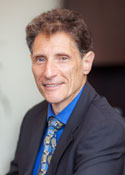 Award Recipient:
Award Recipient:
Mitchell Kronenberg, La Jolla Institute for Allergy & Immunology
AAI Executive Director M. Michele Hogan will introduce the awardee and present the award during the AAI Business Meeting.
For outstanding service to AAI and the immunology community as the AAI Secretary-Treasurer for two terms, 2009-2015
AAI Business Meeting & Awards Presentations
At this session, AAI will report on the “state of the association” to its members. Selected 2016 AAI awards will also be presented during this session.
Members will hear from the Executive Director, the Secretary-Treasurer, the Editor-in-Chief of The Journal of Immunology (The JI), and the Chair of the Committee on Public Affairs as they report on the financial standing of AAI, the status of The JI, important public policy issues, and other items of interest for the membership.
AAI annually provides more than 800 AAI meeting Travel Awards and Grants to recognize the promise and bolster the professional development of investigators of all career stages, including underrepresented scientists and trainees. Award and grant presentations and acknowledgments will include:
Presentations

AAI Distinguished Service Award
For outstanding service to AAI as Secretary –Treasurer, Council member and Chair of the AAI Finance Committee, 2009-2015
Mitch Kronenberg, Ph.D., La Jolla Institute for Allergy and Immunology
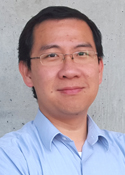
Pfizer-Showell Travel Award
To recognize the professional promise of an early-career investigator
Li-Fan Lu, Ph.D., Assistant Professor, University of California, San Diego
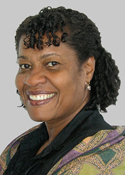
Lustgarten-eBioscience Memorial Award
To advance the career of a mid-career scientist who attends the AAI annual meeting and presents an outstanding abstract specifically in the area of immune regulation
Margaret S. Bynoe, Ph.D., Associate Professor, Cornell University
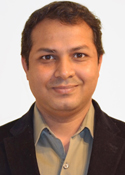
Chambers-eBioscience Memorial Award
To advance the career of an early-career scientist who attends the AAI annual meeting and presents an outstanding abstract specifically in the area of cancer biology
Vinit Kumar, Ph.D., Staff Scientist, The Wistar Institute
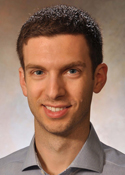
Lefrancois-BioLegend Memorial Award
To advance the career of a trainee who attends the AAI annual meeting and presents an outstanding abstract specifically in the area of mucosal immunology
Michael G. Constantinides, Ph.D., Postdoctoral Fellow, NIAID, NIH
AAI-Thermo Fisher Trainee Achievement Awards
To recognize promising trainees in the field of immunology
- Timotheus Y.F. Halim, Ph.D., Postdoctoral Fellow, MRC Laboratory of Molecular Biology
- Emma L. Kuan, Ph.D., Postdoctoral Research Associate, Benaroya Research Institute
- Si Ming Man, Ph.D., Postdoctoral Fellow, St. Jude Children’s Research Hospital
- Timothy E. O’Sullivan, Ph.D., Research Scholar, Memorial Sloan Kettering Cancer Center
- Xiaodi Wu, Graduate Student, Washington University School of Medicine
- Zhenyu Zhong, Ph.D., Postdoctoral Fellow, University of California, San Diego
Acknowledgments
- AAI Early Career Faculty Travel Grants
- AAI Laboratory Travel Grants
Supported in part by BD Biosciences - FASEB MARC Poster/Platform (Oral) Presenter Travel Awards
Sponsored by FASEB MARC Program under a grant from NIGMS, NIH
[FASEB MARC Program: T36-GM08059-32 NCE] - AAI Undergraduate Faculty Travel Grants
- AAI Trainee Abstract Awards
- AAI Trainee Poster Awards
Poster Presentations
Antigen Processing and Presentation 1
B Cells and Autoimmunity
Checkpoints and Immune Regulation for Tumor Immunity
Cytokines, Chemokines and their Receptors in Tissue-targeted Disease
End Organ Disease in Autoimmunity
Hematopoiesis and Myeloid Cell Development
Host Defense and Immune Mechanisms
Host-Bacterial Interactions
Immunity to Viruses
Immunotherapy 1
Inflammasomes
Inflammation and Tumor Immunity
Late-Breaking Cellular Adhesion, Migration, and Inflammation
Late-Breaking Immediate Hypersensitivity, Asthma and Allergic Responses
Late-Breaking Immune Response Regulation: Cellular Mechanisms
Late-Breaking Lymphocyte Differentiation and Peripheral Maintenance
Late-Breaking Therapeutic Approaches to Autoimmunity
Late-Breaking Tumor Immunology
Late-Breaking Veterinary and Comparative Immunology
Late-Breaking Viral Immunology
Metabolic Function in Immunity
Molecular Mechanisms in Innate Immunity
Molecular Pathways in Autoimmunity
Mucosal Immunity to Bacterial Pathogens
Novel Vaccines/Immunotherapy to Protect from Viral and Bacterial Infection
Pathogen Control and Evasion Strategies
Regulating the Outcome of T Helper Cell Differentiation
Regulation of Immunity at the Lung Mucosa
Respiratory Viruses and the Host Immune Response
T Cell Regulation
T Cells in Health and Disease
Technological Innovations in Immunology 1
The Microbiota and Mucosal Immunity
Therapeutic Interventions for Immune-mediated Disorders
Virus-specific T Cell Activation, Differentiation, and Exhaustion
AAI Public Policy Fellows Program 5th Anniversary Reunion (By Invitation Only)
Sponsored by the AAI Committee on Public Affairs
AAI welcomes all current and past AAI Public Policy Fellows to this 5th anniversary reunion gathering. Members of the AAI Council and AAI Committee on Public Affairs will join the Fellows for this wonderful opportunity to converse with some of the 50 AAI members who have completed the program, and to greet the incoming class of ten new Fellows. Refreshments will be served.
Society for Mucosal Immunology (SMI) Symposium: Innate Regulation of Th2 Immunity
Chairs:
Cathryn Nagler, University of Chicago
Marsha Wills-Karp, Johns Hopkins Bloomberg School of Public Health
Speakers:
David Artis, Weill Cornell Medical College, Immunity at barrier surfaces
Cathryn Nagler, University of Chicago, Regulation of allergic responses to food by commensal bacteria
Marsha Wills-Karp, Johns Hopkins Bloomberg School of Public Health, Novel role for the SAA-FPR2-IL-33 axis in allergic asthma
B. Brett Finlay, University of British Columbia, The role of the microbiota in asthma
AAI-BD Biosciences Investigator Award Presentation and Lecture
Generously sponsored by BD Biosciences
Chair:
Dan R. Littman, HHMI, New York University School of Medicine, AAI President
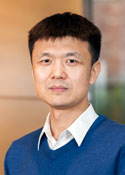 Award Recipient:
Award Recipient:
Ming Li, Memorial Sloan Kettering Cancer Center and Cornell University
Immunity and tolerance in cancer
AAI President Dan R. Littman and Robert Balderas, Vice President of Biological Sciences, BD Biosciences, will introduce the awardee and present the award immediately prior to Dr. Li’s lecture.
The AAI-BD Biosciences Investigator Award recognizes an early-career investigator who has made outstanding contributions to the field of immunology.
Distinguished Lecture – Ulrich H. von Andrian
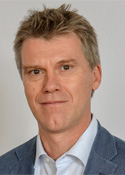
Ulrich H. von Andrian
Harvard Medical School
Career decisions: how T cells remember pathogens
Careers in Biotech: Panel Discussion and Networking
Sponsored by the AAI Education Committee
Chair:
Nandita Bose, Biothera
Panelists:
Fiona Coats, Vice President of Marketing, Meso Scale Diagnostics
Catherine M. Sanders, Director-Scientific Liaison, Adaptive Biotechnologies
Jose Luis Vela, Research Scientist, Novo Nordisk
Clifford D. Wright, Founder, RespirPharm Solutions
Many opportunities exist in industry for scientists with advanced degrees. There are positions in laboratory research, program management, business development, regulatory affairs, clinical trials oversight, medical liaison, and more. This panel features scientists employed in a variety of positions in industry discussing their career paths and the skills required for success in each. Following the panel discussion, enjoy casual conversation with the speakers and other scientists from industry at a networking reception.
The Journal of Immunology (The JI) Editorial Board Dinner Meeting (By Invitation Only)
Generously sponsored by Sheridan Journal Services
Editorial Board members meet to discuss items of interest and concern regarding The JI specifically, and scientific publishing in general.
Major Symposium C: A Breath of Fresh Air: New Developments in Respiratory Tract Immunity
Chairs:
Nicole Baumgarth, University of California, Davis
Anuradha Ray, University of Pittsburgh School of Medicine
Speakers:
Anuradha Ray, University of Pittsburgh School of Medicine, Maintenance of lung immune homeostasis
Thomas J. Braciale, University of Virginia School of Medicine, Early innate immune response to virus infection in the respiratory tract
Nicole Baumgarth, University of California, Davis, Innate and adaptive B cell immunity in the respiratory tract
Bart N. Lambrecht, University Ghent, Epithelial and dendritic cell communication in type 2 immunity
Dennis W. Metzger, Albany Medical College, Immune dysfunction during influenza and susceptibility to secondary bacterial lung infections
Shabaana A. Khader, Washington University in St. Louis, Vaccine immunity to tuberculosis: what to target?
Major Symposium D: Transcriptional Networks in Immune Cell Development
Chairs:
Barbara L. Kee, University of Chicago
Jinfang (Jeff) Zhu, NIAID, NIH
Speakers:
H. Leighton Grimes, Cincinnati Children’s Hospital Medical Center, Using single-cell RNA-Seq for unbiased analysis of developmental hierarchies
Boris Reizis, New York University Langone Medical Center, Transcriptional control of dendritic cell differentiation
Hai-Hui (Howard) Xue, University of Iowa, Regulation of T cell identity by Tcf/Lef transcription factors
Dorina Avram, University of Florida, Bcl11b in transcriptional control of T cells and innate lymphoid cells
Jinfang (Jeff) Zhu, NIAID, NIH, Heterogeneity of innate and adaptive lymphocytes regulated by intricate balance between master transcription factors
Barbara L. Kee, University of Chicago, Regulation of natural killer cell effector fate by the Ets1-E/Id protein transcription factor network
Canadian Society for Immunology (CSI) Symposium: Mechanisms of Tolerance and Autoimmunity
Chairs:
Colin C. Anderson, University of Alberta
Megan K. Levings, University of British Columbia
Speakers:
Amit Bar-Or, McGill University, GM-CSF expressing B cells in autoimmune disease
Jan P. Dutz, University of British Columbia, Regulation of immunity and tolerance in the skin
Sylvie Lesage, University of Montreal, Immunogenetics of CD4–CD8– T cells that confer immune tolerance in NOD mice
Megan K. Levings, University of British Columbia, Functions and therapeutic applications of regulatory T cells
Colin C. Anderson, University of Alberta, Co-inhibitory control of homeostasis
Block Symposia
8:00 AM – 10:00 AM
Bacterial and Parasitic Infection and Immunity 1
Genetic Dysregulation in Immunodeficiencies and Immunemediated Diseases
Immune Cell Trafficking and Immune Responses in the Tumor
Inflammation and Disease
Lymphocyte Development, Homeostasis, and Aging
10:15 AM – 12:15 PM
B Cell Development
Improving Antitumor Efficacy of T Cells
Inflammation and Infection at Mucosal Surfaces
Innate and Cellular Immune Responses to Viruses
T Cell Cytokines and Autoimmunity
Veterinary and Comparative Immunology
12:30 PM – 2:30 PM
Emerging Treatment Approaches in CNS Autoimmunity
Innate Immune Sensing and Signaling
3:45 PM – 5:45 PM
Allergic Mechanisms
Bacterial and Parasitic Infection and Immunity 2
Cytokines in Immune Regulation
Immune Regulation at Mucosal Surfaces
Regulation of CD8 T Cell Activation and Differentiation
Regulatory Mechanisms of Innate Immune Responses
Interviewing for a Job
Chair:
Mary T. Litzinger, AAI
Speaker:
Derek Haseltine, Director, Career Development Center, Baylor College of Medicine
This session will be focused on tips and techniques to help you successfully navigate the interview process. Emphasis will be on how you can present yourself in the best possible light. You will also learn how to respond to unexpected questions. This session is open to anyone but is especially intended for student and postdoctoral attendees.
The Obesity Society (TOS) Symposium: Inflammation Fuels Obesity-Associated Cancers
Chairs:
Gerald V. Denis, Boston University School of Medicine
Barbara S. Nikolajczyk, Boston University School of Medicine
Speakers:
Kristy A. Brown, Hudson Institute, Melbourne, Inflammation and breast cancer: driving tumor growth through dysregulated metabolism and estrogen regulation
Mario Kratz, Fred Hutchinson Cancer Research Center, Adipose tissue inflammation: a potential link between obesity and cancer
Lydia Lynch, Brigham and Women’s Hospital, Harvard Medical School, Obese NK cells lack energy to kill cancer cells
Neil M. Iyengar, Memorial Sloan Kettering Cancer Center, Local and systemic effects of white adipose tissue inflammation: linking obesity and cancer
Careers in Science Roundtable
Sponsored by the AAI Education Committee & AAI Committee on the Status of Women
Chair:
Virginia Shapiro, Mayo Clinic; AAI Committee on the Status of Women Chair
At this always popular session, you’ll have the opportunity to meet with scientists at your own career stage and with more experienced scientists to explore specific career issues important to men and women in science today. Learn what others are thinking and gain insights into issues you are confronting in your own situation. Recently added topics offer insights into NIH Study Sections, considerations for scientists in M.D.-Ph.D. careers, and a number of ways scientists contribute to the field in non-research careers. Choose from these and the other vital topics related to the environment you work in (academic research, biotech industry, governmental agencies, non-profits), the transitions from specific career stages, or issues in balancing career and family in any career path. Don’t miss this great networking opportunity! Registration Fee: $20 (Lunch included.)
Discussion topics and table leaders:
- Research Careers in Academia
- Graduate Student to Postdoc: finding a postdoc, interviewing
Table Leaders: Pooja Jain, Drexel University; Yue-Ming Loo, University of Washington; Michelle A. Parent, University of Delaware; Chander Raman, University of Alabama, Birmingham; James L. Riley, University of Pennsylvania; Carol F. Webb, University of Oklahoma Health Sciences Center - Postdoc to PI: finding a position, interviewing, negotiating, lab start-up
Table Leaders: Shane Crotty, La Jolla Institute of Allergy and Immunology; Lisa K. Denzin, Child Health Institute of NJ Rutgers; Paula M. Kavathas, Yale School of Medicine; Mitchell Kronenberg, La Jolla Institute for Allergy & Immunology; Michele A. Kutzler, Drexel University College of Medicine; Ricardo Rajsbaum, University of Texas Medical Branch, Galveston; Malini Raghavan, University of Michigan Medical School; Amariliz Rivera, Rutgers-New Jersey Medical School - New PI:
- Attracting students and postdocs
Table Leaders: Robin Stephens, University of Texas Medical Branch, Galveston; Emma H. Wilson, University of California, Riverside - Preparing for promotion
Table Leaders: Edward A. Clark, University of Washington; Mitzi Nagarkatti, University of South Carolina School of Medicine
- Attracting students and postdocs
- Negotiating an Academic Position
Table Leaders: Olivera J. “Olja” Finn, University of Pittsburgh School of Medicine; Roland K. Strong, Fred Hutchinson Cancer Research Center - Undergraduate Institutions: finding the balance in teaching, doing research
Table Leaders: Paula M. Lutz, University of Wyoming; Laurie P. Shornick, Saint Louis University - Mentoring Effectively
Table Leaders: Gail A. Bishop, University of Iowa; Klaus Ley, La Jolla Institute for Allergy & Immunology
- Graduate Student to Postdoc: finding a postdoc, interviewing
- Networking Skills: how to build a network
Table Leaders: Jane H. Buckner, Benaroya Research Institute; Madeleine W. Cunningham, University of Oklahoma Health Sciences Center; Catherine C. “Lynn” Hedrick, La Jolla Institute for Allergy and Immunology; Ashok Kumar, Wayne State University - Career and Family: balancing parenthood and career; the dual career couple
Table Leaders: Yueh-Hsiu Chien, Stanford University Medical School; Janice J. Endsley, University of Texas Medical Branch, Galveston; Jessica A. Hamerman, Benaroya Institute; Susan Kovats, Oklahoma Medical Research Foundation - Careers in Biotech and Industry: moving from academia to industry and vice versa
Table Leaders: Heather A. Arnett, Amgen; Tamar Boursalian, Novo Nordisk; Andrew C. Chan, Genentech; Leonard L. Dragone, Genentech; Marc A. Gavin, Benaroya Research Institute; Karel O. Gutierrez, Biogen; Gabriela Hernandez-Hoyos, Emergent BioSolutions; Mary E. Keir, Genentech; Steven D. Levin, Implicit Bioscience; Mandy J. McGeachy, University of Pittsburgh; Catherine J. McMahan, Emergent BioSolutions; Karsten Sauer, Pfizer; Andrey S. Shaw, Genentech; Clifford D. Wright, RespirPharm Solutions - Careers at Governmental Agencies
Table Leaders: Timothy A. Gondre-Lewis, National Institute of Allergy and Infectious Diseases/NIH; Dorian B. McGavern, National Institute of Neurological Disorders and Stroke/NIH; John J. O’Shea, National Institute of Arthritis and Musculoskeletal and Skin Diseases/NIH; Susan K. Pierce, National Institute of Allergy and Infectious Diseases/NIH - NIH Study Section Insights
- Grant Writing for Fellowships/Transition Awards
Table Leaders: Jeremy M. Boss, Emory University; Michael A. Farrar, University of Minnesota; Kristin A. Hogquist, University of Minnesota Center for Immunology; Scheherazade Sadegh-Nasseri, Johns Hopkins Medical Institute - Grant Writing for PIs
Table Leaders: Dorina Avram, University of Florida; Virginia Shapiro, Mayo Clinic; Steven M. Varga, University of Iowa
- Grant Writing for Fellowships/Transition Awards
- The Physician Scientist: balancing clinical and research duties
Table Leaders: Thomas Hawn, University of Washington; Penelope A. Morel, University of Pittsburgh - Research from the M.D., Ph.D. Perspective
Table Leaders: David D. Chaplin, University of Alabama, Birmingham; Christopher Glass, University of California, San Diego - Non-Research Careers for Scientists: careers enabling scientists to advance the field away from the bench
- Careers in Scientific Journals
Table Leaders: Peter T. Lee, Immunity; Jennifer H. Meyers, The Journal of Immunology; Marjorie Cohn, The Journal of Immunology; Ioana Visan, Nature Immunology - Opportunities for Scientists in Foundations, Non-profits, Schools
Table Leaders: Catherine Grubin, Juanita High School; Anne G. Kasmar, Gates Foundation; Thandi M. Onami, Gates Foundation; Mary T. Litzinger; AAI (Awards and Educational Programs) - Careers in Technology Transfer
Table Leader: Nicole C. Robinson, Fred Hutchinson Cancer Research Center - Careers in Science Policy
Table Leaders: Lauren Gross, J.D., AAI (Public Policy and Government Affairs)
- Careers in Scientific Journals
AAI Publications Committee: Scientific Publishing: Writing, Responding to Reviewers, and Adhering to Ethical Standards
Chairs:
Eugene M. Oltz, Washington University School of Medicine, Chair, AAI Publications Committee
Pamela J. Fink, University of Washington School of Medicine, Editor-in-Chief, The Journal of Immunology
Speakers:
Pamela J. Fink, University of Washington School of Medicine, That’s the way it was: the first 100 years of The Journal of Immunology
Eugene M. Oltz, Washington University School of Medicine, Putting your data in the best light: tips on writing a scientific manuscript
Kristin A. Hogquist, University of Minnesota, Responding to reviewers: what you want to say and what you should say
Pamela J. Fink, University of Washington School of Medicine, Much harder to correct than to avoid: ethical problems in scientific publishing
In this session sponsored by the AAI Publications Committee, the Editor-in-Chief will look back at some fun facts from 100 years of The Journal of Immunology – things were not always the way they are now! In addition, experienced editors will address factors to consider when preparing a manuscript, as well as advice on responding to reviewers’ comments. Finally, the Editor-in-Chief of The Journal of Immunology will discuss items that could constitute ethical problems and how authors can avoid such missteps in scientific publishing.
Korean Association of Immunologists (KAI) and Association of Korean Immunologists in America (AKIA) Symposium: Immune Regulation of Viral Pathogenesis
Chairs:
Young S. Hahn, University of Virginia School of Medicine
Eui-Cheol Shin, Korea Advanced Institute of Science and Technology
Speakers:
Eui-Cheol Shin, Korea Advanced Institute of Science and Technology, IL-15 and NKG2D in virus-induced immunopathogenesis
Sang-Jun Ha, Yonsei University, Role of PD-1 in regulatory T cells during chronic virus infection
Heung Kyu Lee, Korea Advanced Institute of Science and Technology, Dysbiosis contributes to impaired antiviral immunity in the genital mucosa
Sujin Lee, Emory University, Broadly neutralizing antibodies induced by multivalent inactivated rhinovirus
Michael W. Cho, Iowa State University, Developing vaccine strategies to modulate immunogenicity of B cell epitopes
Society for Immunotherapy of Cancer (SITC) Symposium: Overcoming Failure of Immune Checkpoint Inhibition in Patients with Cancer
Chairs:
Martin A. Cheever, Fred Hutchinson Cancer Research Center
Augusto C. Ochoa, Louisiana State University Health Sciences Center
Speakers:
Martin A. Cheever, Fred Hutchinson Cancer Research Center, Introduction: immune checkpoint failures: gravity of the problem
Davide Bedognetti, Sidra Medical and Research Center, Cancer genetic program and immune responsiveness
Antoni Ribas, University of California, Los Angeles, Adaptive immune resistance
Lisa M. Coussens, Oregon Health and Science University, Neutralizing cancer: promoting chronic inflammation
Augusto C. Ochoa, Louisiana State University Health Sciences Center, Metabolism and immune suppression in cancer
Martin A. Cheever, Fred Hutchinson Cancer Research Center, Agents to overcome failure
Society for Leukocyte Biology (SLB) Symposium: Metabolic Regulation of Immunity
Chairs:
Mark A. Wallet, University of Florida
Matthew J. Delano, University of Michigan
Speakers:
C. Henrique Serezani, Indiana University, Understanding impaired host defense in type 1 diabetes by looking at the PGE2/DC/Th17 axis
Daniel J. Perry, University of Florida, Metabolic profiling of human PBMC subsets
Emily L. Goldberg, Yale University, Beta-hydroxy butyrate, an alternate metabolic fuel, inhibits neutrophilic inflammation by blocking NLRP3 inflammasome activation
Joseph E. Qualls, Cincinnati Children’s Hospital, Macrophage L-citrulline metabolism improves anti-mycobacterial host defense in vivo
NIH Grants Workshop: Demystifying the Grant Application Submission, Review, and Funding Processes
Chairs:
Tina McIntyre, Center for Scientific Review, NIH
Joseph Breen, NIAID, NIH
Panelists:
Tina McIntyre, Scientific Review Officer, III Study Section, Immunology IRG, DPPS, Center for Scientific Review, NIH
Deborah Hodge, Scientific Review Officer, Immunology Fellowships and AREA Study Section, Immunology IRG, DPPS, Center for Scientific Review, NIH
Joseph Breen, Section Chief, Basic Immunology Branch, Division of Allergy, Immunology and Transplantation, NIAID, NIH
T. Kevin Howcroft, Chief, Cancer Immunology and Hematology Etiology Branch, Division of Cancer Biology, NCI, NIH
This workshop will provide participants with an overview of NIH grant submission, assignment, review, and funding opportunities. Emphasis will be given to identification of the most appropriate funding agencies and mechanisms available through NIH, how to make an application “reviewer friendly”, and other strategies that contribute to applications that succeed in obtaining research funding. The workshop will also provide information on how to understand the peer review system, which is essential to competing successfully for funding, with a focus on recent changes to the review process. NIH review and program staff will provide a broad array of expertise and encourage questions from seminar participants. This workshop is open to anyone interested in learning more about preparing an NIH grant application and obtaining NIH funding. Trainees and independent investigators are welcome.
Also take advantage of the NIH Grant Review and Funding Information Room. NIH program and review staff will be available in Room 400 on Sunday, May 15th, and Monday, May 16th, for individual conversations and consultations.
AAI-BioLegend Herzenberg Award Presentation and Lecture
Generously sponsored by BioLegend
Chair:
Dan R. Littman, HHMI, New York University School of Medicine, AAI President
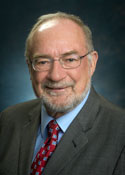 Award Recipient:
Award Recipient:
John F. Kearney, University of Alabama, Birmingham
B cell repertoire ontogeny influences allergy and autoimmunity
AAI President Dan R. Littman and Leonore A. Herzenberg, Stanford University School of Medicine, will introduce the awardee and present the award immediately prior to Dr. Kearney’s lecture.
The AAI-BioLegend Herzenberg Award recognizes outstanding research contributions to the field of immunology in the area of B cell biology.
Poster Presentations
Altered Immune Pathways in Disease
Antigen Processing and Presentation 2
Autoimmunity Triggers and Regulation
B Cell and CD4 T Cell Responses During Viral Infections
B Cell Development
Bacterial and Parasitic Infection and Immunity 1
Cellular Immune Responses at the Mucosa
Cytokine Regulation of Immunity to Eukaryotic Pathogens
Emerging Treatment Approaches in Neuroimmunology
Eukaryotic Host Defenses
Immunology Education
Immunoregulatory Roles for T and B Cell Responses Induced by Vaccines/Immunotherapy
Innate Cells in Autoimmunity
Innate Immune Cells and B Cells in Cancer
Innate Immune Regulation
Late-Breaking Cytokines and Chemokines and Their Receptors
Late-Breaking Innate Immune Responses and Host Defense: Molecular Mechanisms
Late-Breaking Mucosal and Regional Immunology
Late-Breaking Technological Innovations in Immunology
Late-Breaking Transplantation Immunology
Leukocyte Trafficking.
Lymphocyte Activation and Differentiation
Mast Cells and IgE
Metabolism and Immune Regulation in Tumor Therapy
MicroRNAs and RNA Control
Molecular Basis for Mucosal Vaccines: Novel Strategies and Mechanisms
Natural Born Killers: The Cytotoxic Approach
Regulatory Lymphocytes
T Cell Development
T Cell Responses during Acute and Chronic Virus Infections
T Cell Subsets, T Cell Therapy, and Vaccines for Cancer
The Early Moments of T Cell Activation
Transplantation Immunology
National Institute on Aging (NIA) Symposium: The Interplay between Chronic Viral Infection and Immunosenescence
Chairs:
Rebecca A. Fuldner, NIA, NIH
Beth D. Jamieson, University of California, Los Angeles
Speakers:
Beth D. Jamieson, University of California, Los Angeles, The impact of HIV infection on aging of the human immune system
Graham P. Pawelec, University of Tübingen, The impact of CMV infection on immunity and survival in older humans
Janet E. McElhaney, Advanced Medical Research Institute of Canada, CMV and frailty: contributions to immune senescence
Sean X. Leng, Johns Hopkins University School of Medicine, Impact of CMV on T cell immunity in HIV infection and aging
Society for Natural Immunity (SNI) Symposium: NK Cells and ILCs: Development and Disease
Chairs:
Adelheid Cerwenka, German Cancer Research Center
Andreas Diefenbach, University of Mainz Medical Center
Speakers:
Adelheid Cerwenka, German Cancer Research Center, Harnessing natural killer cells against tumors
Andreas Diefenbach, University of Mainz Medical Center, Transcriptional control of innate lymphoid cell fate decisions
Todd A. Fehniger, Washington University School of Medicine, microRNA regulation of NK cells
Aharon G. Freud, Ohio State University, Human innate lymphoid cell development in secondary lymphoid tissues
AAI-Steinman Award for Human Immunology Research Presentation and Lecture
Chair:
Dan R. Littman, HHMI, New York University School of Medicine, AAI President
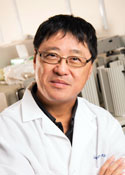 Award Recipient:
Award Recipient:
Lieping Chen, Yale School of Medicine
PD-1/PD-L1 blockade therapy for human cancer: past, present and future
AAI President Dan R. Littman will introduce the awardee and present the award immediately prior to Dr. Chen’s lecture.
The AAI-Steinman Award for Human Immunology Research recognizes an individual who has made significant contributions to the understanding of immune processes underlying human disease pathogenesis, prevention, or therapy.
Distinguished Lecture – Susan K. Pierce
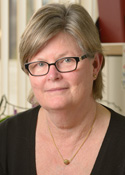
Susan K. Pierce
NIAID, NIH
How B cells adapt in a changing world
Service Appreciation Reception (By Invitation Only)
Generously sponsored by BioLegend
(Badge and invitation required)
AAI honors the association’s dedicated member volunteers—committee members, editors, abstract programming chairs, and others—who work on the membership’s behalf throughout the year by giving generously of their time in support of the AAI mission. Open (by invitation only) to 2015-2016 AAI volunteers.
Major Symposium E: Cell-Cell Communication during Viral Infection
Chairs:
Tania H. Watts, University of Toronto
Susan M. Kaech, HHMI, Yale University
Speakers:
John R. Teijaro, Scripps Research Institute, Employing activity-based chemoproteomic approaches to understand virus-immune interactions
Frances E. Lund, University of Alabama at Birmingham, Regulation of virus specific B cell fate decisions by the T-box transcription factor, T-bet
Shane Crotty, La Jolla Institute for Allergy and Immunology, Follicular helper T cells in infections and antiviral vaccines
Tania H. Watts, University of Toronto, The where, when, and why of GITR/GITRL in control of chronic infection
Susan M. Kaech, HHMI, Yale University, Immunosuppressive vs. immunosupportive roles of IL-10 in antiviral immunity
Rama Rao Amara, Emory University, The dynamics of follicular CD4 and CD8 T cells during chronic SIV infection
Major Symposium F: Putting the Biology into Systems Biology
Chairs:
Bali Pulendran, Emory Vaccine Center at Yerkes
W. Nicholas Haining, Harvard Medical School, Dana-Farber Cancer Institute
Speakers:
Harinder Singh, Cincinnati Children’s Hospital Medical Center, Viewing the immune system through the lens of gene regulatory networks
W. Nicholas Haining, Harvard Medical School, Dana-Farber Cancer Institute, Epigenetic landscape of T cell exhaustion
Nir Yosef, University of California, Berkeley, Understanding functional heterogeneity of Th17 cells through single cell genomics
Galit Alter, Ragon Institute of MGH, MIT, and Harvard, Mining for mechanisms of humoral immune protection using Systems Serology
Bali Pulendran, Emory Vaccine Center at Yerkes, Systems vaccinology
Mark M. Davis, HHMI, Stanford University, Nature, nurture, and the alpha beta TCR repertoire
Block Symposia
8:00 AM – 10:00 AM
Asthma and Airway Inflammation
B Cells and Autoimmunity
Host Defense and Immune Mechanisms
Immunosuppressive Mechanisms in Cancer
Metabolic and Mucosal Control of Immunity
T Cells in Health and Disease
10:15 AM – 12:15 PM
Innate Immune Cells and B Cells in Cancer
Molecular Pathways in Autoimmunity
Regulation of Immunity at the Lung Mucosa
Regulation of T Cell Responses
12:30 PM – 2:30 PM
Eukaryotic Host Defenses
Immune Responses in Cancer Therapy
Molecular Mechanisms of Innate Immunity
Novel Therapeutic Mechanisms in Systemic Autoimmunity
Regulating the Outcome of T Helper Cell Differentiation
Regulation of B Cell Responses
Technological Innovations in Immunology 1
3:45 PM – 5:45 PM
Cancer Immunotherapy: Novel Strategies and Targets
Immunity to Viruses
Molecular Basis for Mucosal Vaccines: Novel Strategies and Mechanisms
Natural Born Killers: A Cytotoxic Approach
Regulatory T Cells
Tissue-specific Effects of Cytokines and Chemokines
American Society of Gene & Cell Therapy (ASGCT) Symposium: Genetic Engineering of T Cells
Chairs:
Michel Sadelain, Memorial Sloan Kettering Cancer Center
Stanley Riddell, Fred Hutchinson Cancer Research Center
Speakers:
Michel Sadelain, Memorial Sloan Kettering Cancer Center, Genetic engineering of chimeric antigen receptors
Jo Brewer, Adaptimmune LLC, T cell receptors
Stanley Riddell, Fred Hutchinson Cancer Research Center, What is the best T cell subset?
Ann M. Leen, Baylor College of Medicine, Genetically modified virus-specific cells
German Society for Immunology (DGfI) Symposium: Intracellular Immunosensors
Chairs:
Hans-Martin Jäck, University of Erlangen-Nürnberg
Jürgen Wienands, University of Göttingen
Speakers:
Jürgen Wienands, University of Göttingen, Immunology in Germany
Olaf Groß, Technical University of München, K+ efflux-independent NLRP3 inflammasome activation via NEK7
Axel Roers, University of Dresden, Aicardi-Goutières syndrome: inappropriate intracellular sensing of endogenous nucleic acids
Angela Rösen-Wolff, University of Dresden, The role of caspase-1 in intracellular immunosensing
Gunther Hartmann, University of Bonn, Immune sensing of RNA by RIG-I
International Complement Society (ICS) Symposium: Specific Targeting of Complement Pathways for Clinical Benefit
Chairs:
V. Michael Holers, University of Colorado, Denver
Jessy J. Alexander, University at Buffalo
Speakers:
Menno Van Lookeren Campagne, Genentech, Inc., Illuminating targets for age-related macular degeneration
Beth Stevens, Children’s Hospital, Harvard Medical School, Immune mechanisms of synapse loss in health and disease
Joshua M. Thurman, University of Colorado, Denver, The point of no return: IgM, complement, and the progression of kidney disease
Antonio Risitano, University of Naples, Lessons from treatment of paroxysmal nocturnal hemoglobinuria (PNF): multiple dimensions of complement
AAI Vanguard Lecture
Supported in part by a grant to the Federation of American Societies for Experimental Biology (FASEB) from the National Institute of General Medical Sciences (NIGMS), National Institutes of Health [FASEB MARC Program: T36-GM08059-32 NCE]
Chair:
Cherié L. Butts, Biogen-Idec; AAI Minority Affairs Committee Chair
Speaker:
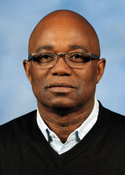 Prosper N. Boyaka, Ohio State University, Diversity: Lessons from regulation of mucosal immunity by toxins and microbiota
Prosper N. Boyaka, Ohio State University, Diversity: Lessons from regulation of mucosal immunity by toxins and microbiota
Since 2003, the AAI meeting has featured a scientific lecture presented by an AAI member who is an underrepresented minority investigator. Selected for their achievements in the field of immunology, presenters are among the most prominent investigators in the field and models of successful career development.
AAI Excellence in Mentoring Award Presentation
Chair:
Dan R. Littman, HHMI, New York University School of Medicine, AAI President
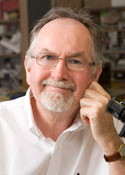 Award Recipient:
Award Recipient:
Richard A. Flavell, HHMI, Yale School of Medicine
AAI President Dan R. Littman and Hongbo Chi, St. Jude Children’s Research Hospital, will introduce the awardee and present the award prior to the start of the President’s Symposium.
The AAI Excellence in Mentoring Award recognizes exemplary career contributions to a future generation of scientists.
AAI President’s Symposium: Host Immune Responses to Viruses
Chair:
Dan R. Littman, HHMI, New York University School of Medicine, AAI President
Speakers:
Adolfo Garcia-Sastre, Mount Sinai School of Medicine, Regulation of innate immune pathways during RNA virus infections
Akiko Iwasaki, HHMI, Yale School of Medicine, Antiviral immune responses at mucosal surfaces
Louis J. Picker, Oregon Health & Science University, CD8+ T cell recognition of cytomegalovirus: who is in charge?
E. John Wherry, University of Pennsylvania, Development and reversal of T cell exhaustion

Adolfo Garcia-Sastre

Akiko Iwasaki

Louis J. Picker

E. John Wherry
Secrets for a Successful Postdoctoral Fellowship
Chair:
Mary T. Litzinger, AAI
Speaker:
Daniel J. Campbell, Full Member, Benaroya Research Institute; Affiliate Associate Professor and Graduate Program Coordinator, Department of Immunology, University of Washington
A postdoctoral fellowship is the time to develop research skills you will need to succeed as an independent scientist. It is, however, just as important to realize that you need to prepare for a career path at the same time. This session will highlight ways of getting the most out of your postdoctoral fellowship, relating successfully with your mentor, and understanding how to use the resources available to you to ensure that your training prepares you adequately for a seamless transition into the next phase of your career.
Poster Presentations
Allergic Mechanisms
Asthma and Airway Inflammation
B Cell Activation and Terminal Differentiation
B Cell Regulation
Bacterial and Parasitic Infection and Immunity 2
Cytokine Regulation
Genetic Dysregulation in Immunodeficiencies and Immune-mediated Diseases
Immune Cell Trafficking and Immune Responses in the Tumor
Immune Regulation at Mucosal Surfaces
Immune Responses in Cancer Therapy
Immunosuppressive Mechanisms in Cancer
Immunotherapy 2
Inflammation and Disease
Inflammation and Infection at Mucosal Surfaces
Innate and Cellular Immune Responses to Viruses
Innate Immune Sensing and Signaling
Late-Breaking Antigen Processing and Presentation
Late-Breaking Basic Autoimmunity
Late-Breaking Hematopoiesis and Immune System Development
Late-Breaking Immune Mechanisms of Human Disease
Late-Breaking Immune Response Regulation: Molecular Mechanisms
Late-Breaking Innate Immune Responses and Host Defense: Cellular Mechanisms
Late-Breaking Microbial, Parasitic, and Fungal Immunology
Late-Breaking Vaccines and Immunotherapy
Lymphocyte Development, Homeostasis, and Aging
Metabolic and Mucosal Regulation
Molecular Signatures of Eukaryotic Pathogens
Novel Regulators of Cytokines and Chemokines
Novel Therapeutic Mechanisms in Systemic Autoimmunity
Regulatory Mechanisms of Innate Immune Responses
T Cell Cytokines and Autoimmunity
Technological Innovations in Immunology 2
Veterinary and Comparative Immunology
AAI Clinical Immunology Committee: Translational Research Toward Putting the Immune System to Sleep in Human Disease
Chairs:
Robert L. Modlin, University of California, Los Angeles, Chair, AAI Clinical Immunology Committee
Agnes M. Azimzadeh, University of Maryland
Speakers:
Fred D. Finkelman, University of Cincinnati College of Medicine, Rapid suppression of IgE-mediated allergy
Emma Guttman-Yassky, Icahn School of Medicine at Mount Sinai Medical Center, A paradigm shift in the pathogenesis and treatment of atopic dermatitis
Gerald T. Nepom, Benaroya Research Institute, Targeting effector memory in pursuit of immune tolerance
Stephen D. Miller, Northwestern University Medical School, From bench to bedside: translation of a novel nanoparticle approach for tolerogenic therapy of immune-mediated diseases
Advances in translational immunology research have led to new tactics to dampen inappropriate or excessive immune responses as therapeutic approaches for autoimmune and inflammatory diseases. This session will include discussion of present approaches and future directions that will be valuable to immunologists interested in translational research.
National Cancer Institute (NCI) Symposium: Extracellular RNA Communication in the Immune System
Chairs:
K. Mark Ansel, University of California, San Francisco
T. Kevin Howcroft, NCI, NIH
Speakers:
Gyongyi Szabo, University of Massachusetts Medical School, Extracellular vesicles and microRNAs in innate immune cell communication in the liver
Ryan M. O’Connell, University of Utah, MicroRNA-containing exosomes and the regulation of inflammatory responses
Amy S. Major, Vanderbilt University Medical Center, HDL-associated small RNA communication in autoimmunity
K. Mark Ansel, University of California, San Francisco, Regulated microRNA release within extracellular vesicles during T cell activation
Japanese Society for Immunology (JSI) Symposium: Immune System Regulation, Function, and Related Diseases: Symposium by JSI Awardees
Chairs:
Kenji Kabashima, Kyoto University
Yoshiyuki Goto, Chiba University
Speakers:
Kensuke Takada, University of Tokushima, Thymoproteasome-dependent positive selection of CD8 T cells
Kiyoshi Hirahara, Chiba University, Molecular mechanism for the maintenance of immune homeostasis via CD4+ T cells
Noriko Komatsu, University of Tokyo, Plasticity of Foxp3+ T cells and its impact on autoimmune arthritis
Yoshiyuki Goto, Chiba University, Commensal bacteria and ILC3 regulate intestinal homeostasis
Kenji Kabashima, Kyoto University, Cutaneous immune responses to external antigens
AAI-Thermo Fisher Meritorious Career Award Presentation and Lecture
Generously supported by Thermo Fisher Scientific
Chair:
Dan R. Littman, HHMI, New York University School of Medicine, AAI President
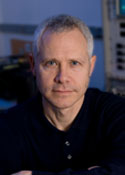 Award Recipient:
Award Recipient:
Kenneth M. Murphy, HHMI, Washington University School of Medicine
Proper responses to pathogens – a DC / T cell dialog
AAI President Dan R. Littman and Christoph Hergersberg, Senior Director, Molecular Biology, Thermo Fisher Scientific, will introduce the awardee and present the award immediately prior to Dr. Murphy’s lecture.
The AAI-Thermo Fisher Meritorious Career Award recognizes a mid-career scientist for outstanding research contributions to the field of immunology.
Distinguished Lecture – John J. O’Shea

John J. O’Shea
NIAMS, NIH
Cytokine signaling: genes, genomes, and drugs
IMMUNOLOGY 2016™ GALA
Generously sponsored by BioLegend
Monday, May 16,
EMP, Seattle Center
325 Fifth Avenue North
Seattle, WA 98109
Whether your idol is Jimi Hendrix or Han Solo, you’ll enjoy this world famous museum of popular music and science fiction. See guitars signed by rock legends, hand-written lyrics, costumes and props from popular sci-fi films, and more. Dance to live bands, record your own performance in the EMP’s Sound Lab, and enjoy drinks and food by Wolfgang Puck! Your meeting badge enables you to take the 90-second Monorail ride to the Gala for free!
Open to all IMMUNOLOGY 2016™ attendees. Come as you are, directly from the Center. Attendees must be at least 21 years of age. Meeting badge required.
Major Symposium G: T Cell Specialization in Tissues: From Thymus to Periphery (and Back)
Generously sponsored by BD Biosciences
Chairs:
Stephen C. Jameson, University of Minnesota
Donna L. Farber, Columbia University Medical Center
Speakers:
Stephen C. Jameson, University of Minnesota, Regulation of memory T cell residency and recirculation
Thomas S. Kupper, Brigham and Women’s Hospital, Harvard Medical School, Protective memory T cells in barrier tissues
Donna L. Farber, Columbia University Medical Center, Human T cell tissue compartmentalization: from naïve to memory
Martin Prlic, Fred Hutchinson Cancer Research Center, Human T cell function in healthy and inflamed mucosal tissues
Jonathan D. Powell, Johns Hopkins School of Medicine, Dissecting and targeting mTOR signaling in T cells
Paola Romagnoli, Institut National de la Santé et de la Recherche Médicale U1043, Toulouse, France, Peripheral regulatory T lymphocytes recirculating to the thymus suppress the development of their precursors
Major Symposium H: Novel Concepts in Neuroimmunology
Chairs:
Jonathan Kipnis, University of Virginia School of Medicine
Zsuzsanna Fabry, University of Wisconsin
Speakers:
Jonathan Kipnis, University of Virginia School of Medicine, The role of meningeal lymphatics in CNS autoimmunity
Joan M. Goverman, University of Washington, Do T cells shape neuroinflammatory patterns in multiple sclerosis?
Dorian McGavern, NINDS, NIH, Dynamics of immune interactions that contribute to health and disease in the living brain
Zsuzsanna Fabry, University of Wisconsin, Novel roles for cytokines regulating neuroimmune interactions in CNS trauma
Francisco J. Quintana*, Brigham and Women’s Hospital, Harvard Medical School, Regulation of CNS inflammation
*Supported by the British Society for Immunology
Claudia F. Lucchinetti, Mayo Clinic, NFκB signaling drives pro-granulocytic astroglial responses to the neuromyelitis optica IgG: pathogenic and therapeutic implications
Block Symposia
8:00 AM – 10:00 AM
Autoimmunity Triggers and Regulation
B Cell Activation and Terminal Differentiation
Checkpoints and Immune Regulation for Tumor Immunity
Hematopoiesis and Myeloid Cell Development
Novel Regulators of Cytokine Production and Functions
Respiratory Viruses and the Host Immune Response
The Microbiota and Mucosal Immunity
10:15 AM – 12:15 PM
Adoptive Cell Therapy and CAR T cells
Antigen Processing and Presentation 2
Consequences of Antigen Recognition by Lymphocytes
Immunoregulatory Roles for T and B Cell Responses Induced by Vaccines/Immunotherapy
Inflammasomes
Pathogen Control and Evasion Strategies
Technological Innovations in Immunology 2


 Promote your message to attendees using stair decals located right inside the entrance to the Washington State Convention Center. Each attendee will walk those stairs to get to the Exhibit Hall and Scientific Sessions. There are two sets of stairs (seven stairs each) available; decals will be 10’ in length. Qualifies for Contributing Sponsor for one set of stairs and Supporting Sponsor for both sets.
Promote your message to attendees using stair decals located right inside the entrance to the Washington State Convention Center. Each attendee will walk those stairs to get to the Exhibit Hall and Scientific Sessions. There are two sets of stairs (seven stairs each) available; decals will be 10’ in length. Qualifies for Contributing Sponsor for one set of stairs and Supporting Sponsor for both sets.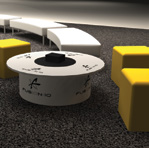 Today's attendees travel with at least one mobile device, whether it is a smartphone, tablet, or laptop. Create excitement around your company's product/service offering. Sponsorship includes charging station branded with sponsor logo. Limit, 1 sponsor. Qualifies for Contributing Sponsor.
Today's attendees travel with at least one mobile device, whether it is a smartphone, tablet, or laptop. Create excitement around your company's product/service offering. Sponsorship includes charging station branded with sponsor logo. Limit, 1 sponsor. Qualifies for Contributing Sponsor. 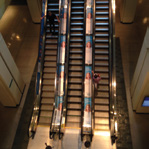 Three sets of escalators take attendees from entrance to the Center on street level up to the Expo Hall on Level 4. Each set of escalators has one up, one down, and one in the middle determined by traffic flow. Two runner spots available for each set of escalators. Sponsor two and save. Limit six total, two runners per sponsor. Qualifies for Contributing Sponsor.
Three sets of escalators take attendees from entrance to the Center on street level up to the Expo Hall on Level 4. Each set of escalators has one up, one down, and one in the middle determined by traffic flow. Two runner spots available for each set of escalators. Sponsor two and save. Limit six total, two runners per sponsor. Qualifies for Contributing Sponsor.